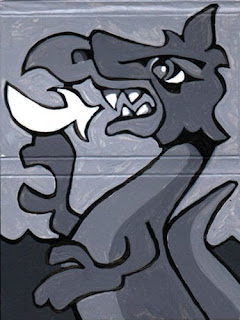
(XII)
Décembre-December
Décembre
Le dixième mois de l’année chez les Romains, l’année commençant au mois de mars.
Il fait froid au fond du soir
La lumière du jour cède sa place au noir
Quand sous les étoiles règne la nuit,
Le solstice d’hiver redonne la vie
December
The nights are deep and very cold
The light of day has lost its hold
As darkness rules beneath the stars
This solstice month will become ours
Touts les carnets de papiers à cigarettes du mois (depuis janvier 2001) maintenant disponibles sur la toile au
http://belecart.blogspot.com/
All the monthly cigarette paper booklets (since January 2001) now archived on the web at
http://belecart.blogspot.com/
16 décembre 2009
# 46-1436
gerart@sympatico.ca
http://belecart.blogspot.com/

















































